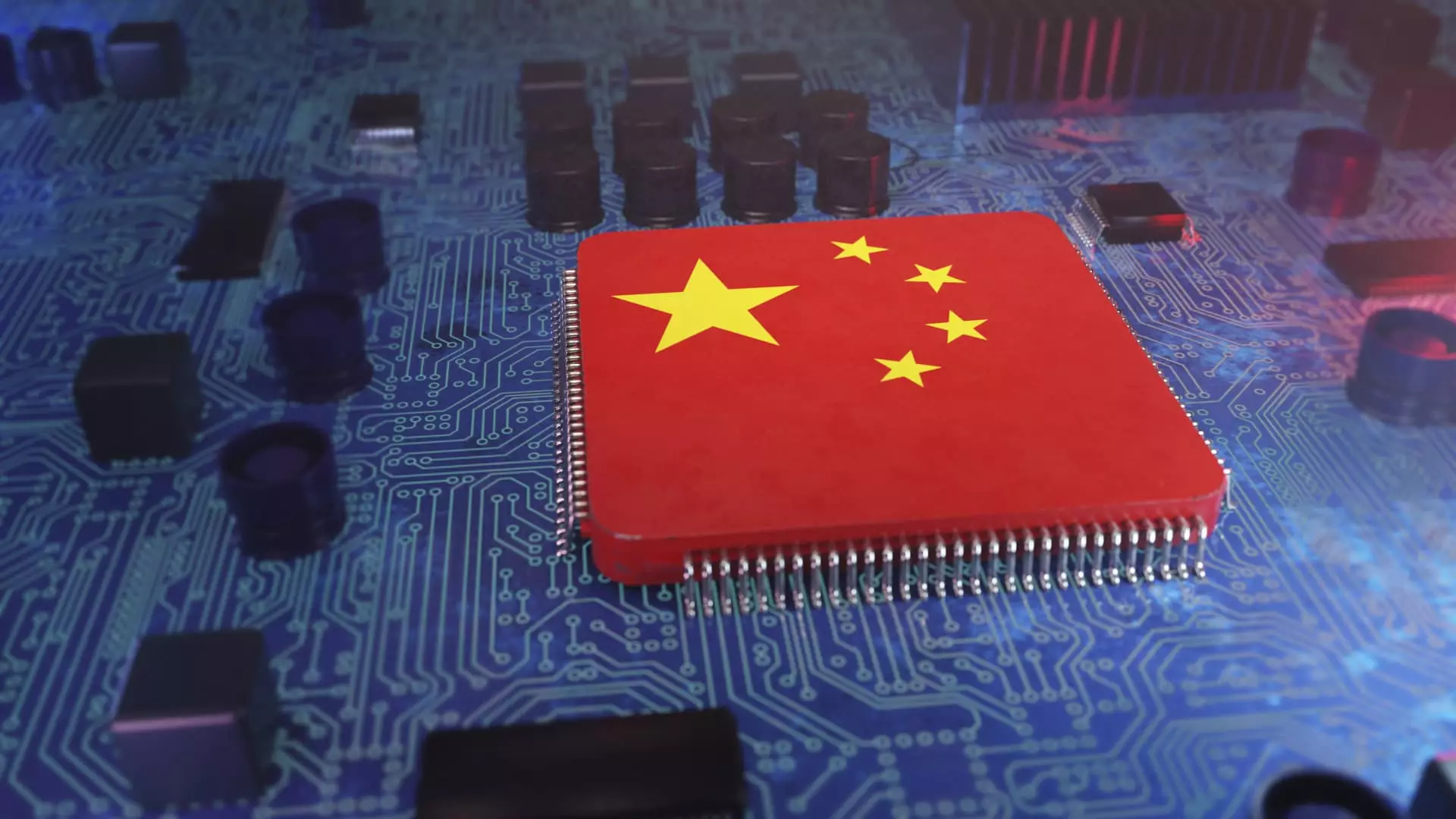The recent surge in artificial intelligence (AI) innovation among Chinese companies reveals a critical pivot in how businesses are addressing the anxieties posed by U.S. tariffs. As the technological landscape evolves, China finds itself on the forefront of generative AI developments, seeking not only to mitigate external pressures but to expand its global economic clout. With the likes of Kuaishou, Tencent, and Baidu just scratching the surface of the possibilities offered by this potent technology, it’s clear that AI isn’t just another buzzword—it’s becoming a lifeline for corporate profitability in an increasingly tumultuous trade environment.
A noteworthy instance of this shift can be seen in Kuaishou’s recent announcements regarding its AI tool, Kling, which has raked in over 100 million yuan since its launch. This figure speaks volumes about the potential that AI has to create revenue streams even in challenging times. The speed at which organizations are integrating AI for diverse applications—from video generation to agricultural analysis—indicates that businesses are not just reacting to tariffs and economic uncertainty; they are strategically using AI to forge ahead.
Tencent’s Innovative Leap into AI-Enhanced Solutions
Tencent’s advancements provide a case study in how Chinese enterprises are leveraging AI to thrive. By updating its AI model for 3D visual generation and integrating it with its Yuanbao chatbot, Tencent is not merely expanding its technological arsenal; it’s also finding unique ways to boost engagement—the company reported a staggering 20-fold increase in daily active users. The strategic utility of AI goes beyond entertainment and enters practical realms, as evidenced by farmers utilizing this technology to analyze soil conditions effectively.
Such applications underline a crucial advantage for China in the global arena. While Western countries grapple with market uncertainty, China’s abundance of data from its manufacturing sector positions it to lead in “physical” AI. The convergence of vast data collection capabilities and innovative AI is a winning combination that could redefine industries and drive economic growth.
The Role of Autonomy and DeepRoute.ai
The emergence of autonomous delivery systems, as championed by companies like DeepRoute.ai, encapsulates another dimension of AI’s impact on economic dynamics. These companies are not merely adapting to market conditions; they are redefining entire logistical frameworks. CEO Maxwell Zhou’s ambition to create a system that allows users to command delivery vehicles through simple voice instructions exemplifies the transformative power of AI technology. If deployed as planned, this could catalyze a shift in consumer expectations, pushing other companies to adapt quickly to remain competitive.
This move into autonomous systems isn’t just beneficial for tech aficionados; it focuses on enhancing consumer convenience amid slower economic conditions, giving Chinese firms an upper hand in a market where delivery and logistics are increasingly vital.
Economic Implications and Future Earnings
As analysts speculate on the impact of these AI advancements on corporate earnings, it’s essential to recognize that boosting efficiency through AI can counteract some negative effects of economic slowdowns and tariffs. The tech-savvy entrepreneur’s mantra has shifted; it’s no longer adequate to outrun market pressures solely through traditional means. Instead, the successful navigation of tariffs will increasingly hinge on harnessing AI to maintain profitability. Ding Wenjie’s optimism for the year ahead stems from a belief that AI will play a crucial role in GDP resilience.
As the stakes continue to rise with evolving international relations, especially regarding U.S.-China trade dynamics, the focus must shift from merely discussing tariff regulations to embracing a collaborative future with AI. This sentiment aligns with New York Times columnist Thomas Friedman’s assertion that the central issue between the powers is not merely tariffs or territorial disputes but a deeper imperative: honing AI’s capabilities that can either shape global dominance or initiate unprecedented collaborations.
Collaboration vs. Competition: The AI Debate
The potential for AI to forge new pathways between nations is a tantalizing prospect. The notion of U.S.-China collaboration on AI reminds us of the geopolitical landscape of nuclear arms control—both crucial for global stability and fraught with implications for national security. While competition is natural in any technological race, it’s the strategic collaborations that could yield a more robust international framework for addressing the challenges posed by rapid technological advancements.
China is not merely playing defense against tariffs; it’s proactively shaping its economic narrative through innovation. As both nations grapple with the emergence of AI, a collaborative approach should be prioritized over adversarial tactics. This shift in mindset has the potential to foster not just economic resilience but also broader societal benefits across the global landscape.

